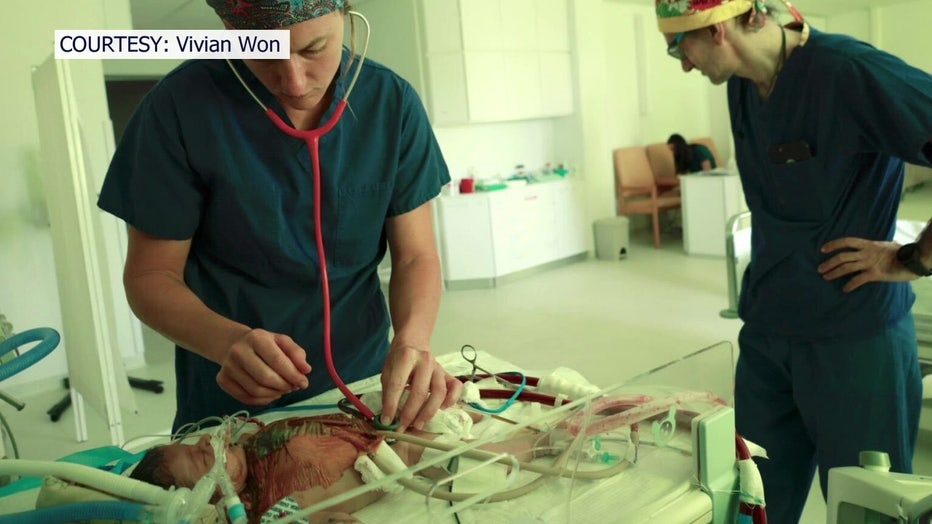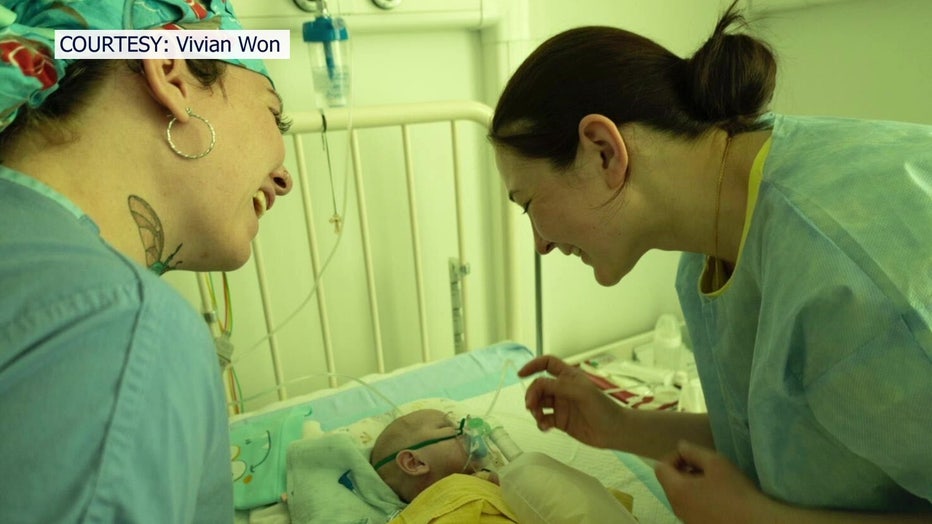Sarasota doctor helps heal hearts of children in war-torn Ukraine
SARASOTA, Fla. - A respiratory therapist from Sarasota returned home Wednesday after more than a week in Ukraine, helping children suffering from potentially deadly heart conditions.
Nate England, who works at Johns Hopkins All Children's Hospital in St. Petersburg, joined volunteers with Novik Cardiac Alliance to travel to war-torn Ukraine to help treat pediatric cardiac patients.
"All the kids we operate on, they needed these surgeries or they were going to pass away," England said.
According to England, who left on June 4 and spent nine days in Ukraine, said fighting in Kiev and Kharkiv, the hospital in Leviv was the only one left in the country where children needing heart surgeries could receive treatment.
"We were pretty much the place in the whole country to come to for heart surgery at the moment," he said. "That was really empowering to know that, I'm not on the front lines, but I'm doing something that no one else can do. I'm part of a team that's doing what no one else can do right now in this country."

England said the hospital barely had enough equipment and medications for its patients and it desperately needed the Novik Cardiac Alliance's assistance.
READ Parents unsure how children under 18 months will get COVID-19 vaccine in Florida
"I'm not impacting the war directly, but I'm impacting the people affected by it," England said. "The kids need [to be] helped out. They're caught up in it. If I could make their life a little better, that's what I want to do."

England felt a deep connection to Ukraine. He taught English there several years ago and still has friends in the country. He said he wouldn't hesitate to make a return trip if he's asked.
"To have that chance to go and help this country that means a lot to me, it meant the world to me. It was so incredible just to help in that way," he said.
According to Novick Cardiac Alliance's website, the organization "is committed to bringing sustainable health care solutions to children with cardiac disease in low- and middle-income countries."

